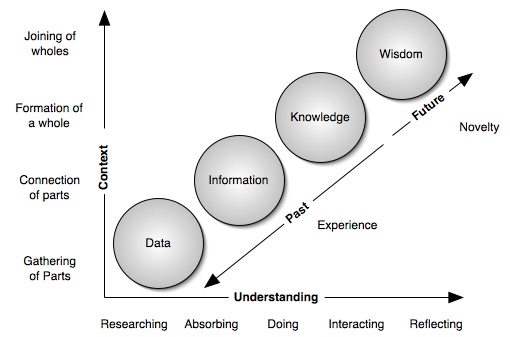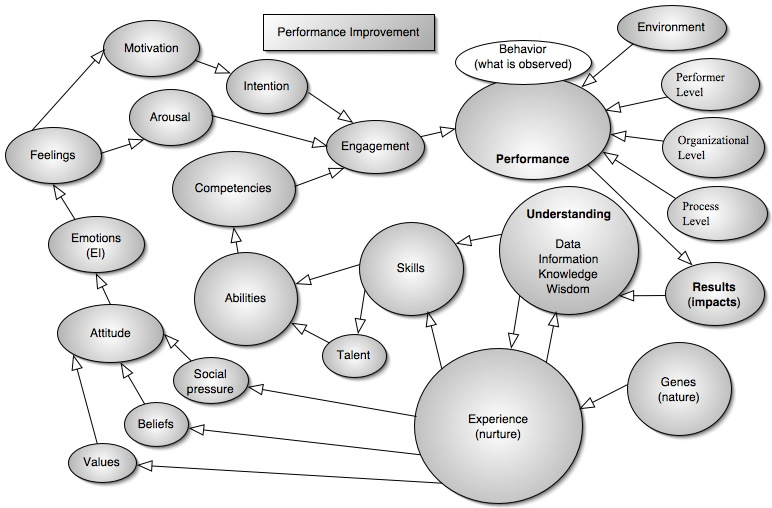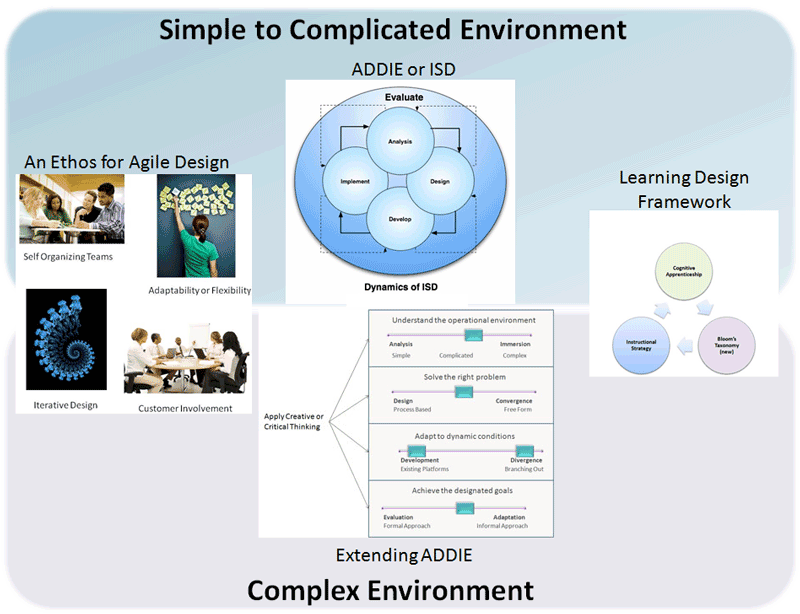Note: This site is moving to KnowledgeJump.com. Please reset your bookmark.
Understanding and Performance
One gains knowledge through context (experiences) and understanding.
When one has context, one can weave the various relationships of the experiences. The greater the context, the greater the variety of experiences that one is able to pull from.
The greater one understands the subject matter, the more one is able to weave past experiences (context) into new knowledge by absorbing, doing, interacting, and reflecting.
Where is the Life we have lost in living?
Where is the wisdom we have lost in knowledge?
Where is the knowledge we have lost in information?
T. S. Eliot's The Rock (1934)
The Continuum of Understanding

For more information, click on the various terms in the above concept map.
Thus, understanding is a continuum (Cleveland, 1982):
- Data comes about through research, creation, gathering, and discovery.
- Information has context. Data is turned into information by organizing it so that we can easily draw conclusions. Data is also turned into information by "presenting" it, such as making it visual or auditory.
- Knowledge has the complexity of experience, which come about by seeing it from different perspectives. This is why training and education is difficult - one cannot count on one person's knowledge transferring to another. Knowledge is built from scratch by the learner through experience. Information is static, but knowledge is dynamic as it lives within us.
- Wisdom is the ultimate level of understanding. As with knowledge, wisdom operates within us. We can share our experiences that create the building blocks for wisdom, however, it need to be communicated with even more understanding of the personal contexts of our audience than with knowledge sharing.
Often, the distinctions between data, information, knowledge, and wisdom continuum are not very discrete, thus the distinctions between each term often seem more like shades of gray, rather than black and white (Shedroff, 2001).
Data and information deal with the past. They are based on the gathering of facts and adding context. Knowledge deals with the present. It becomes a part of us and enables to perform. However, when we gain wisdom, we start dealing with the future as we are now able to vision and design for what will be, rather than for what is or was.
References
Cleveland H. "Information as Resource", The Futurist, December 1982 p. 34-39.
Shedroff, N. (2001). An overview of understanding. Information Anxiety 2 by Richard Saul Wurman. Indianapolis: Que.



